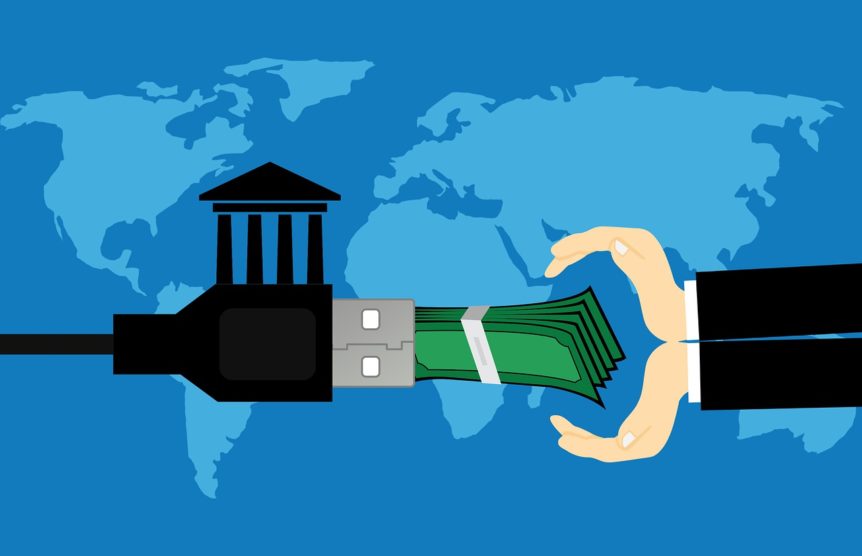Anytime you’re making a large purchase, it is generally considered good practice to double or even triple check the details of the recipient of the funds in question. But, sometimes, despite your best efforts, you realize afterward that you entered the wrong account number. Now, what?
In other instances, you may wire money to a bank account only to later realize that you’ve just fallen victim to an elaborate scam. Now, you’re a couple of thousand dollars poorer. What do you do in such cases? Can you reverse a wire transfer?
That, dear readers, is the million-dollar question. Here’s everything you need to know.
What Does It Mean to Wire Money

First off, let’s cover all the bases. We use that term – “wire money” – all the time, but do you understand what it means?
“Wire” is short for “bank wire transfer.” It generally refers to the electronic transfer of money from one bank to another. Ideally, if you’re dealing with a business or individual and they request you to wire money to them, you need to notify your bank that you want to send a “wire” to another entity. This applies for business to business wire transfer as well.
The bank will then ask for the name of the recipient, the bank, the bank address, the routing numbers, and in some cases, the SWIFT code if you’re trying to wire funds to an international bank. So, in case you were wondering what information is needed to wire money, that’s generally what the bank requires.
How Does a Wire Transfer Work
Once the bank has all these details, it then initiates the transfer of the amount you want to send to the recipient. First, it creates a payment order. If the recipient of the money and the sender of the payment order both happen to have accounts in the same bank, then the wire transfer will be immediate.
All the bank has to do is adjust the ledger entries for each account. That concludes the transfer.
If, on the other hand, the transfer is happening between two different domestic banks, then the process may take one or more days. That’s the time it takes for the payment order originating from the sender’s bank to reach the recipient’s bank.
So, how long does a wire transfer take if the recipient is in a different country altogether? International transfers typically take a couple of days to complete.

Can You Reverse a Wire Transfer?
Well, it depends on the stage at which the transfer has reached. If the recipient bank has already accepted the order, tough luck, it’s too late to do anything about it at that point.
However, if you notify your bank that you want to cancel the payment transaction, it would send a cancellation notice to the recipient bank. If the latter receives it before the payment order is accepted, then the recipient bank will generally not accept the order. So, as you can see, it is a race against time.
Extenuating Circumstances
Now, if the payment goes through, and the funds get debited from your account and sent to the recipient account, it isn’t standard practice for the wire transfer to be reversed at that point. Nonetheless, there are certain extenuating circumstances where this is possible.
These are:
- If the originating bank made a mistake with the account number
- If the payment order sent was a duplicate of a previous one
- If the amount received by the beneficiary was greater than what they were entitled to receive
If you entered a wrong account number, you might be able to amend it if the transfer is still in the “pending” or “processing” stage. But, if you entered an incorrect routing or account number, the bank will likely reject the transaction.
The issue comes in when you enter, what would be considered “legit” account details belonging to an actual individual or entity, and the beneficiary bank completes the transaction.
If the reason for this doesn’t fall under any of the “extenuating circumstances” listed above, then neither the originating bank nor the recipient bank has access to the beneficiary account in question.
In short, no – you cannot reverse a wire transfer once the funds hit the beneficiary account if no extenuating circumstances surround the erroneous transfer. Banks and other wire transfer institutions generally address the sender’s liability if they provide the wrong account information or end up erroneously wiring money to a scammer.
ACH vs Wire
There are several forms of electronic transfers that exist besides wires. There are P2P (person-to-person) payment tools, money transfer services like Western Union, and bank-to-bank transfers through the Automated Clearing Houses (ACH) network.

ACH and wire transfers may look like they work in the same way, but they are quite different. Both are interbank electronic money transfers, except that ACH payments are generally faster, cheaper, and more secure compared to their wire transfer counterparts.
ACH transfers are commonly referred to as direct deposit payments, and, just like wires, reversals are only done under three conditions:
- Wrong account number
- Wrong dollar amount
- Duplicate transaction
Wire Transfer Agreement
A common question we often get is – What happens if a business wires money without a signed contract? Well, let’s just say that there’s a very high likelihood of falling victim to wire fraud. Signing a wire transfer agreement is particularly important for any business to business wire transfer.
It stipulates the specific individuals in a company authorized to initiate transfers or validate the transfer instructions. It also details how the bank should authenticate all transfer requests, including a phone call or email to a specific individual.
Recovery Options
To answer the question – Can you reverse a wire transfer? The short answer is no unless it was the bank’s mistake. So, while it may not be possible to reverse the transfer, you can still explore other options for recovery.
For instance, you can get in touch with the recipient bank and ask them to track down the account holder and request them to reverse the transaction. However, if the funds are no longer in the account, you may not be able to get the money back.
In such instances, you’ll need to contact an attorney to explore your options. Sometimes, lodging a personal lawsuit may be your only hope. If you have any legal questions about wire transfer reversals, you can chat online with a Laws101.com attorney.
